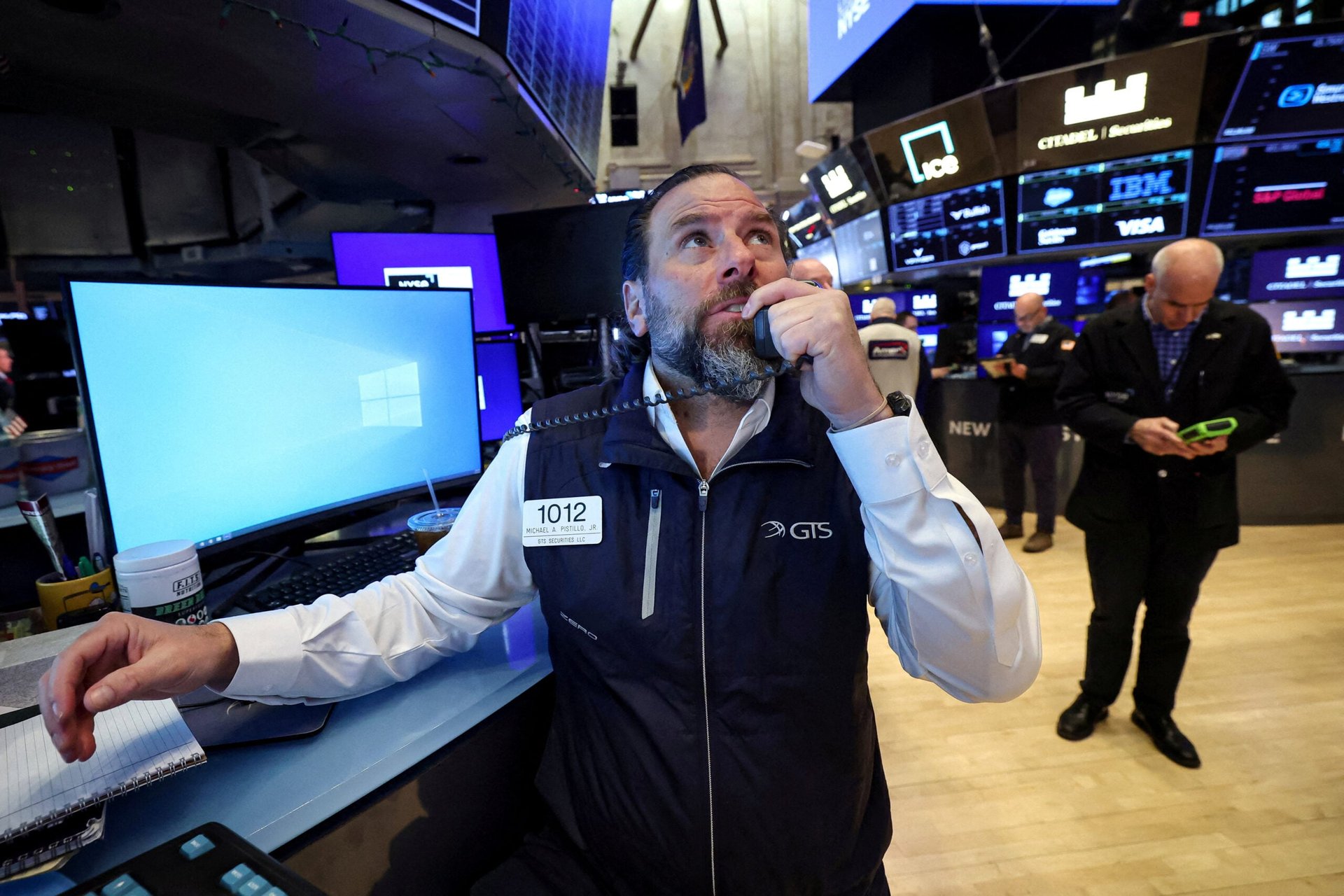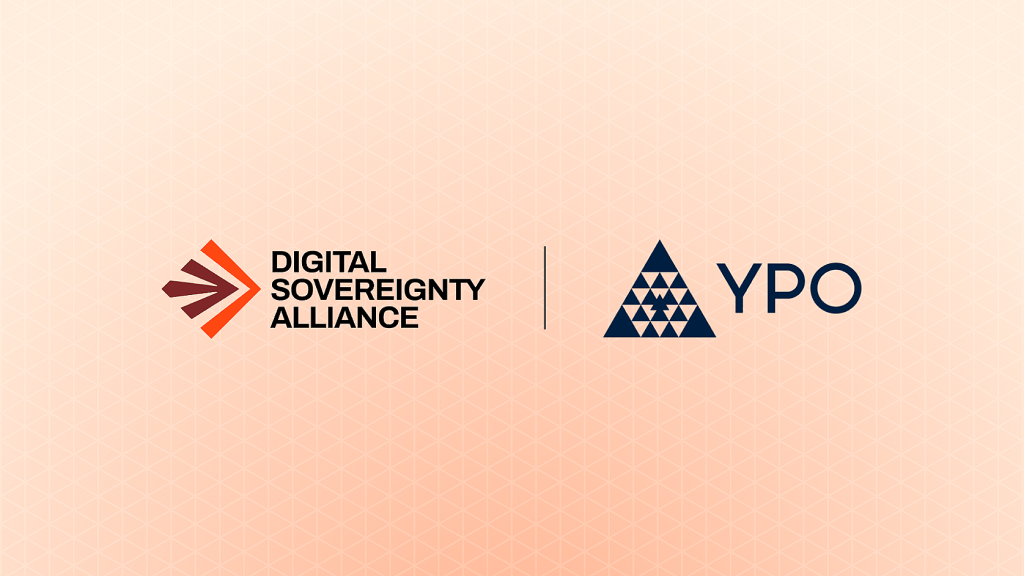BlackRock , a giant in the world of stocks and bonds, is ramping up its efforts to serve the stablecoin market, the company first told CNBC. This latest move from Larry Fink’s firm, set to be announced Thursday, aims to further capitalize on the boom in cryptocurrencies. The manager of $13.5 trillion in assets has retooled one of its money market funds with an investment strategy designed to appeal to stablecoin issuers. One of its defining attributes: It complies with the landmark piece of U.S. legislation, signed into law this summer by President Donald Trump , that provides a regulatory framework for stablecoins. Stablecoins are a key part of the cryptocurrency ecosystem — with a lot of potential growth ahead. Citi analysts forecasted in late September that, in an optimistic scenario, total stablecoin issuance could surge to $4 trillion by 2030, up from roughly $280 billion this fall. “We want to be — and we believe we are — a preeminent reserve manager” for stablecoin issuers, Jon Steel, the global head of product and platform for BlackRock’s cash management business, told CNBC ahead of Thursday’s announcement. After all, BlackRock has for years partnered with the second-largest stablecoin issuer, Circle, managing the majority of its reserve fund. Circle went public in June in a red-hot deal. With the updated fund, the world’s largest asset manager is looking to bring capabilities similar to what it does for Circle to the wider stablecoin issuer community. Stablecoins trade on digital ledgers known as blockchains, just like popular cryptocurrencies such as bitcoin. The difference, though, is that stablecoins are designed to maintain a consistent value relative to another asset — often pegged to the U.S. dollar — rather than gain in price over time. In this way, stablecoins are commonly used to transact on blockchains, including making purchases of cryptocurrencies. People looking to buy stablecoins go to an issuer and pay for them with actual money. The stablecoin issuer doesn’t want to just hold the cash. It wants to get some yield by putting its customer’s cash somewhere safe and accessible; if a client wants to redeem their stablecoins for dollars, the issuer needs ready access to the funds to pay them back. That makes money market funds popular destinations for those stablecoin reserves – they’re considered both safe and liquid because they’re invested in things like short-term U.S. Treasurys. They also provide the added benefit of throwing off a higher yield than a traditional savings account at a bank. That’s where BlackRock, a seasoned operator of money market funds, comes into the picture. The overhauled money market fund – now dubbed the BlackRock Select Treasury Based Liquidity Fund (BSTBL) – is designed to have more liquidity than its previous iteration. The fund will also provide additional access by extending its trading deadline from 2:30 pm to 5:00 pm ET. Those changes come alongside its compliance with the so-called GENIUS Act, which introduced the first federal guardrails for stablecoins and spelled out the safe places where reserves need to be invested. With Trump’s signature in July, the government effectively gave U.S. companies their blessing to issue these digital tokens – a big win for the crypto industry. A titan of traditional finance, BlackRock is betting the BSTBL fund will be a win in its efforts to move deeper into crypto. Steel told CNBC that the fund allows the firm to continue to grab market share in a growing segment of the digital asset space. “It represents an opportunity not just to help our clients if they’re looking to issue a stablecoin and how we can help them in doing that, but clearly this is going to create the potential for new distribution opportunities,” Steel added. BLK XLF YTD mountain BlackRock’s year-to-date stock performance versus the S & P 500’s financial sector. To be sure, the retooled money market fund is not exclusively for issuers of stablecoins. Institutional investors such as pensions and endowments can also put cash in it. For example, Steel said the expanded trading hours could appeal to clientele located on the West Coast. That “gives corporate treasurers, particularly those in the West Coast, just a bit more time to work through their own [profit and loss] needs,” he said. In the digital asset world, BlackRock’s existing offerings include a popular bitcoin exchange-traded fund and an Ethereum exchange-traded product , which both launched last year. The investment manager is also behind the largest tokenized money market fund, called the BlackRock USD Institutional Digital Liquidity Fund (BUIDL). Launched in March 2024, BUIDL distinguishes itself from a traditional money market fund in that ownership is recorded on a blockchain and it trades 24/7. BlackRock’s earnings report on Tuesday showed that its efforts in crypto are paying off. The aforementioned bitcoin and Ethereum products were among the biggest drivers of its 10% organic base fee growth in the third quarter, CFO Martin Small said on the conference call. Meanwhile, its cash management business surpassed $1 trillion in assets under management for the first time ever last quarter. Indeed, BlackRock’s partnership with Circle as the primary manager of their cash reserves is “driving meaningful growth,” Small said. The executive continued, “Our mandate surpassed $64 billion this quarter. BlackRock delivered some of the strongest organic base fee growth in recent history, and we enter the fourth quarter in an excellent position.” After gaining 3.4% Tuesday to close at a record high, BlackRock shares tacked on a modest gain in Wednesday’s session. The stock rose 0.7% and closed above $1,200 a share for the first time ever. This is all part of BlackRock’s efforts to expand outside the traditional world of publicly traded stocks and bonds. The iShares ETF operator has announced a slew of deals since the start of 2024 in alternative assets, including acquisitions of private credit manager HPS Investment Partners, infrastructure investment firm Global Infrastructure Partners and alternative data provider Preqin . On Wednesday, a consortium of investors including BlackRock acquired a data center operator for $40 billion . The Investing Club’s stake in BlackRock, initiated a year ago this month, is rooted in large part on its strategy to get bigger in these areas. Moving forward, BlackRock plans to expand even further in digital assets. On Tuesday’s earnings call, chief executive Fink touted tokenization as “one of the most exciting areas of growth in financial markets.” Tokenization refers to the creation of blockchain-based versions of various assets. Although a onetime “proud skeptic” of bitcoin, Fink has spoken positively about blockchain technology going back at least seven years . “We see future commercial opportunities in using tokenization to further bridge the gap between traditional capital markets and the growing digital asset space,” Fink, who co-founded BlackRock in 1988, said on Tuesday’s earnings call. “There’s over $4.5 trillion in value sitting in digital wallets across crypto assets, stablecoins and tokenized assets. We see this market growing significantly over the next few years.” (Jim Cramer’s Charitable Trust is long BLK. See here for a full list of the stocks.) As a subscriber to the CNBC Investing Club with Jim Cramer, you will receive a trade alert before Jim makes a trade. Jim waits 45 minutes after sending a trade alert before buying or selling a stock in his charitable trust’s portfolio. If Jim has talked about a stock on CNBC TV, he waits 72 hours after issuing the trade alert before executing the trade. THE ABOVE INVESTING CLUB INFORMATION IS SUBJECT TO OUR TERMS AND CONDITIONS AND PRIVACY POLICY , TOGETHER WITH OUR DISCLAIMER . NO FIDUCIARY OBLIGATION OR DUTY EXISTS, OR IS CREATED, BY VIRTUE OF YOUR RECEIPT OF ANY INFORMATION PROVIDED IN CONNECTION WITH THE INVESTING CLUB. NO SPECIFIC OUTCOME OR PROFIT IS GUARANTEED.























